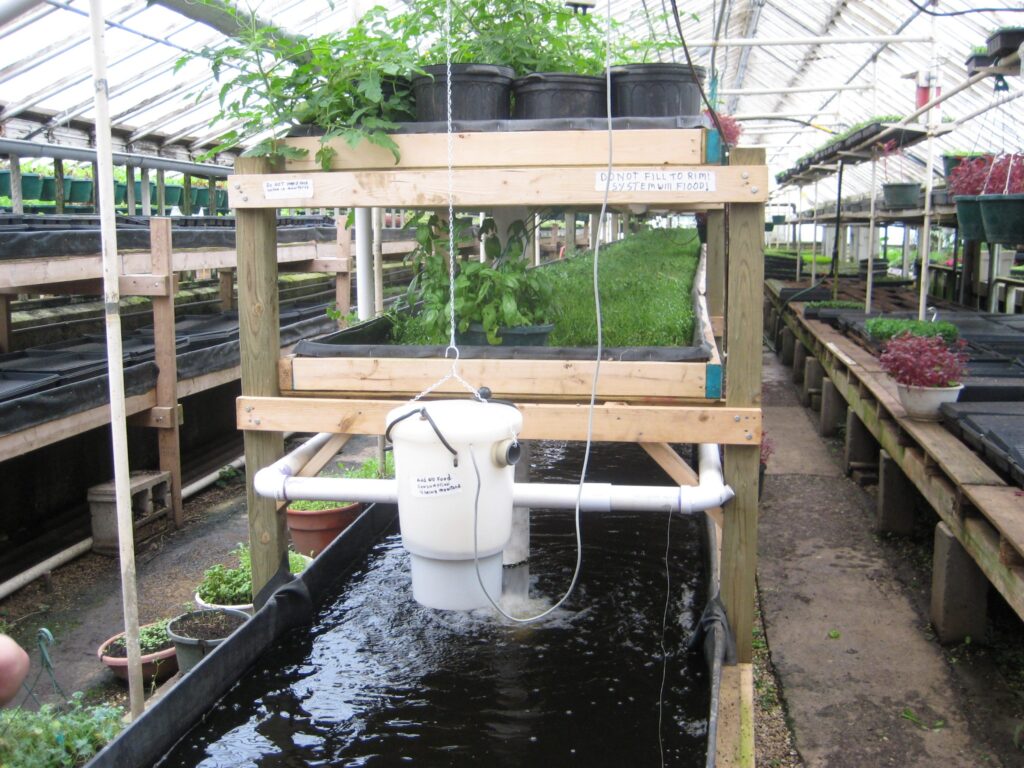Introduction
In the history of Polytheism, reverence for the Earth has been a common thread in many traditions. Ancient rituals, such as the immersion of sacred objects in waterways or the traditional burning of trees for Yule, were once part of a harmonious relationship with a less-burdened Earth. However, in today’s context of climate change and ecological collapse, these same practices necessitate a reconsidered approach.
Acknowledging that our ancestors lived in a vastly different world is crucial. Their interactions with nature, such as the Celts making offerings in lakes and rivers, held different meanings and consequences in their times. These historical practices were part of a different landscape, where human impact on the planet was considerably less pronounced.
Today, as we consider environmental issues, we need to adapt and rethink traditional spiritual practices. It’s not about assigning blame to ancient peoples or traditions; it is about recognizing that replicating these practices in the modern world requires reevaluation. The question then arises: How can we honor these traditions while being mindful of our current ecological challenges?
Mystical Ecology is a proposed synthesis of Occult and Ecological sciences. It’s an invitation to align our spiritual intentions with sustainable, environmentally aware actions, adapting the practices of the past to the urgent needs of our present.
Ecology:
Noun
“The scientific study of the processes influencing the distribution and abundance of organisms, the interactions among organisms, and the interactions between organisms and the transformation and flux of energy and matter.”
Mystical:
Adjective
“Involving or characterized by esoteric, otherworldly, or symbolic practices or content, as certain religious ceremonies and art; spiritually significant; ethereal.”
Mystical Ecology
As such Mystical Ecology can be defined as “the scientific and esoteric study, characterized by both material and otherworldly practices, of processes influencing distribution and abundance of organisms; interactions between organisms; and the transformation and flux of energy and matter.”
Imagine a practice where the intricate scientific knowledge of a forest ecosystem combines with Occult practices and spiritual reverence for each tree and creature, creating a holistic approach to understanding and engaging with our natural world.
Myth
“There is no idea, however ancient and absurd, that is not capable of improving our knowledge. The whole history of thought is absorbed into science and is used for improving every single theory.” Paul Feyerabend
Current environmental challenges have made it increasingly clear that simply reducing ecological crises to scientific data points or new technological solutions is not enough to galvanize widespread action. Understanding and action are only parts of addressing our environmental crisis. The myths we hold – the collective stories that tell us who we are in relation to the world around us – play a crucial role.
Data informs us, but it is myth that moves us.
If our prevailing stories depict us as conquerors of nature, separate and dominant, they lead us down a path of destruction, often without our conscious awareness. Alternatively, when our myths evolve to envision ourselves as integral parts of nature, as members of a larger ecology, our actions naturally become more life-generative and sustainable.
An often overlooked aspect is the nature of technological development. It is not a linear progression. Our collective myths shape the types of technologies we develop and how we implement them. These stories and beliefs – about progress, our relationship with nature, and what constitutes ‘advancement’ shape the trajectory of our technological evolution.
Technology
For example, the use of bacteria in Australia for sterilizing wastewater which avoids environmentally harmful, energy-intensive processes represents a radically different kind of technology that integrates natural processes rather than attempting to sterilize them. The concept of living machines for wastewater treatment is another example.
Similarly, systems like aquaponics replicate natural ecosystems for food production. They utilize a narrative of integration and replication rather than the domination of the ‘Green’ ‘Revolution.’ These systems don’t impose on nature but extend its processes. This is also apparent in the development of mycelium-based materials where the natural growth patterns of fungi are harnessed to create sustainable products. Even in urban settings, green infrastructure for stormwater harvesting and management reflects this shift, incorporating natural water cycles into city development.
These technologies are more than tools; they are a new story about our place in the world.
For centuries, many traditional practices which viewed humans as a part of a broader ecology, rather than externalizes, can be reevaluated through the lens of the microbiome. These practices intuitively understood what modern science is just beginning to uncover: that we are not separate entities fighting against nature but rather complex ecosystems in ourselves, teeming with diverse microbial life.
This holistic view contrasts sharply with some modern medical practices, particularly the overuse of antibiotics. By seeing bacteria as inherently antagonistic and striving to eliminate these microbes, we’ve often disrupted the delicate balance of our internal ecosystems. This approach, stemming from a narrative of separation and domination over nature, has inadvertently led to issues like antibiotic resistance and compromised gut health, impacting our overall well-being.
Had we embraced the concept of seeing ourselves as part of nature, recognizing our bodies as microcosms of ecological diversity, our medical approaches would have been different. We might have been more cautious in using antibiotics, understanding the need to maintain the intricate balance of our internal flora. These themes of regeneration and natural abundance, prevalent in many myths even mirror the practices behind peptide therapy and stem cell research.
This focus on informed ecological action and transformative myths is central to Mystical Ecology. It requires a significant shift in both our understanding and our storytelling. We need to transition from viewing ourselves as outsiders trying to control nature to seeing ourselves as part of a living, breathing ecosystem with a responsibility to nurture and sustain it.
By acknowledging the limitations of relying solely on sterile scientific data and recognizing the power of myth, we can more effectively inspire and mobilize communities toward meaningful ecological action.
Myths are not just stories; they are the means by which humanity interacts with everything around us.
Ecological Risks
However, it’s vital to remain mindful of potential risks. For example, introducing non-native plant species into an ecosystem can disrupt local biodiversity even with positive spiritual intentions. A deep understanding of ecological balance must inform our physical and spiritual interventions.
Our actions, informed by scientific understanding, carry the power to either heal or harm our planet. If we act without a well-informed ecological consciousness, we risk causing immeasurable damage to the fabric of nature that sustains us.
Deconstruction
Many perceive human nature as inherently greedy and consumptive, a viewpoint often cited in discussions about ecological crisis. However, a closer examination of our environmental challenges reveals a different truth. If our actions were purely driven by greed, we would be zealously amplifying production through aquaponics for abundant fresh fish and shrimp year-round or embracing regenerative agriculture for a steady supply of locally harvested almonds and avocados. Not to mention all the rainwater we could be harvesting and packing into our depleted aquifers. Potential examples of this contradiction are limitless.
The crisis we face is not an expression of human greed; it’s a manifestation of a more complex and destructive force: domination. This drive for domination over nature, over resources, over each other is not an inescapable trait of humanity but a product of specific myths that have been cultivated and reinforced over time.
As we reflect on the power of myth in our ecological practices, let’s pause to consider a question that does not have straightforward answers but is essential for deeper understanding and responsibility:
How do your personal myths about nature and your place in the world shape your interaction with the ecologies around you?
This question forces us to look inward, unraveling and examining the stories we carry. It’s not a question that can be answered hastily. Instead, it requires thoughtful deconstruction of our belief systems. This process challenges us to confront long-held views about our relationship with the natural world.
Reflecting on this question is more than an intellectual exercise. Understanding and reshaping our myths can contribute to a collective shift towards ecological practices that honor and preserve the web of life.
Fields for Research

Several fields of research and application offer opportunities for exploration and growth. For those inspired to delve deeper and practically apply the ideas discussed, the following areas provide fertile ground:
-
Permaculture: A sustainable approach to land management that mirrors the ethics and design principles found in natural ecosystems. It encourages the development of self-sustained, ecologicalhabitats.
-
Engagement with the Wheel of the Year: Participating in the Wheel of the Year festivals offers a way to synchronize our internal clocks with the rhythms of the local ecology. These festivals, rooted in various indigenous European cultural traditions, mark the changing seasons and significant moments in the natural cycle. By observing these festivals, we celebrate and honor the Earth’s rhythms and attune ourselves to the subtle shifts in our environment. For more on the Wheel of the Year see our articles on Yule, Samhain, and Beltane.
-
Herbal Medicine and Mycology: These ancient practices connect us deeply with the healing powers of plants and fungi, offering insights into the intricate relationships between humans and the natural world.
-
Regenerative Farming: This agricultural method focuses on renewing soil health, increasing biodiversity, and restoring ecosystems, aligning farming practices with ecological balance and sustainability.
-
Earthworks such as swales and terraces play a major role in regenerative ecology. Our article on Ingwe and ancestral waterworks explores the mythic and spiritual dimensions of these practices.
-
Alchemy in Ecology: Barbarian Alchemy revolves around the alchemical manipulation of three fundamental elements: Calas (physical essence), Gwyar (flow), and Nwyfre (life force). This approach guides us in achieving ecological balance and abundance by harmonizing these elemental forces within the natural world. By balancing these elements, we open channels for the Awen, bringing its abundance into the material world.
Each field provides practical ways to engage with our environment and reflects the ethos of Mystical Ecology, where the spiritual and material realms coalesce. By exploring these areas, we can find tangible ways to implement the principles of Mystical Ecology in our daily lives, contributing to a more harmonious and sustainable relationship with our planet.
Conclusion
Mystical Ecology bridges the materialist understanding of ecology and the spiritual, esoteric practices that connect us to the natural world. Whether rooted in science or spirituality, these practices carry the power to heal or harm our planet. As we have delved into various fields, from permaculture to alchemy in ecology, we’ve displayed practical avenues to apply these principles, fostering a deeper communion with the environment.
The crises we face today are not merely ecological but are deeply rooted in the stories we tell ourselves. The narrative of human domination over nature has led us down a path of destruction, displaying the urgent need to reshape our myths. By envisioning ourselves as integral parts of a larger ecological dance and not as conquerors of nature, we open the door to a more sustainable and life-generative future.
This call for a new narrative is not just an abstract concept but a tangible pathway to altering our collective destiny. By engaging with the Wheel of the Year, embracing regenerative farming, and exploring the depths of herbal medicine, we begin to live out a new story.
As we move forward, let us carry with us the conviction that our actions, informed by both ecological knowledge and profound spiritual insights, can guide us toward a future where we live not just on the Earth but with it, in a relationship of respect, understanding, and a sense of belonging.
Toutā Caillte is entirely funded by our readers. Please consider donating via my Patreon to fund future writing and ecological projects. Thanks!
